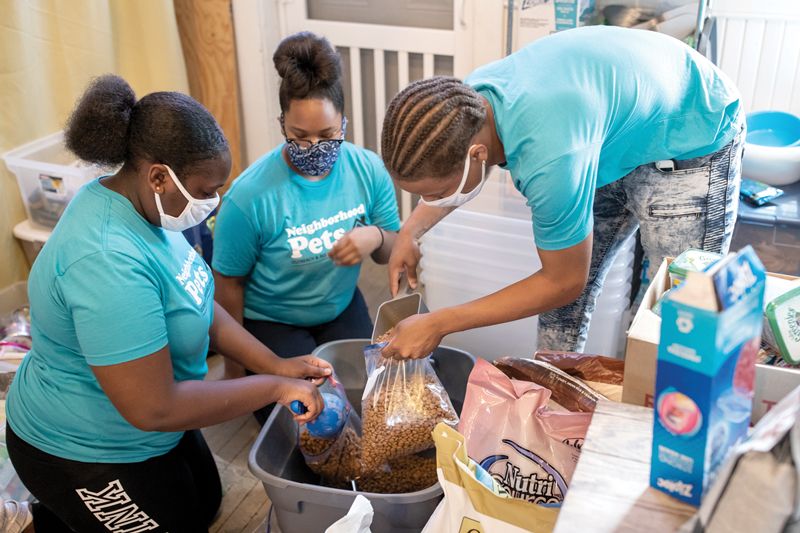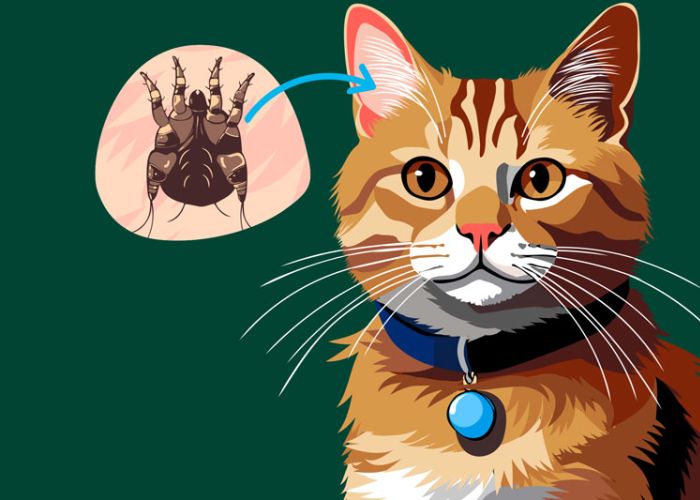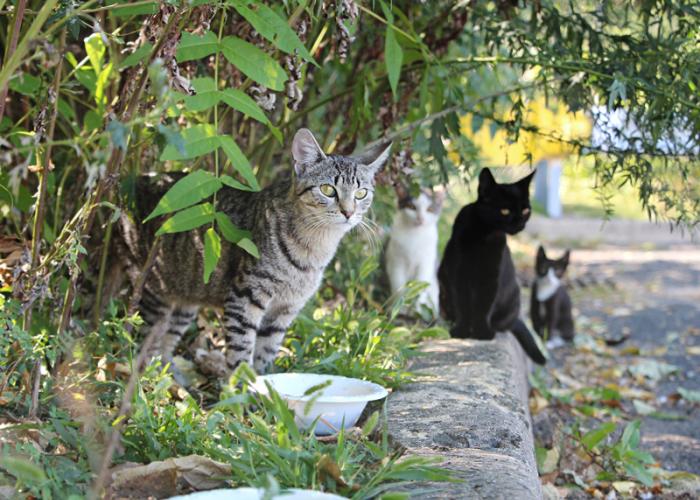Like a good neighbor
Cleveland nonprofit is a consistent presence and trusted pet care resource
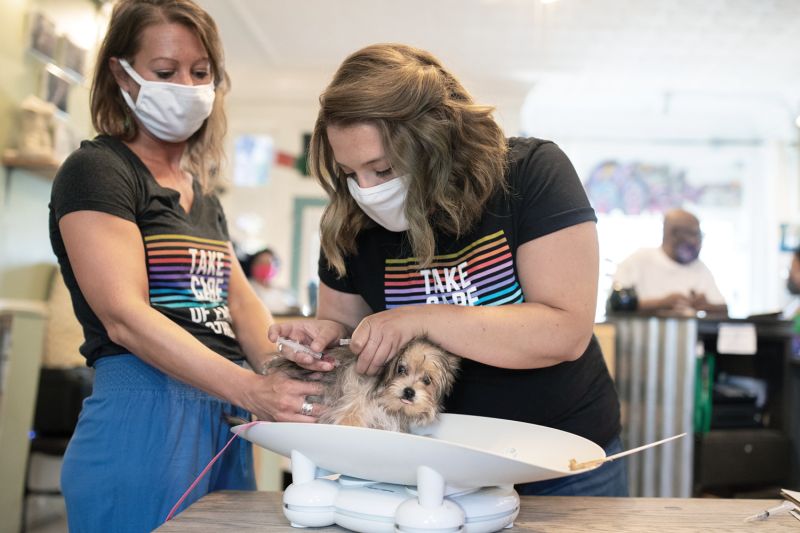
Four years ago, Gordon Martin got the surprise of his life. Helping a friend clean out a vacant apartment, the Cleveland, Ohio, pastor opened a garbage can and found a 5-month-old puppy cowering inside. The two men who had moved out had simply put her in the can. By the time Martin found her, the dog was weak and listless. She “had just given up,” he says. He took the terrified pup home, where she spent all her time hiding, refusing to walk, play or be touched. Though Martin had owned dogs previously, this little girl stymied him. Fortunately, he knew where he could find help.
Martin contacted Neighborhood Pets Outreach and Resource Center, a nonprofit based in a community known as Slavic Village, where the poverty rate is one of the highest in Cleveland, says executive director Becca Britton. It’s also where the highest number of pets surrendered to the city’s municipal shelter originate. The center’s mission is to keep low-income pet owners and their furry family members together by providing free food and low-cost supplies and veterinary services.
Martin had taken pets to the center for care before, and he was sure the staff would know what to do. Britton and her staff coached him through socializing the puppy, whom he named Venus, helping him work through her (and his) anxiety and gain her trust. Venus received vaccinations and other basic medical care and was scheduled for a spay surgery.
“The big difference we see here is the trust that our clients have in us.”
—Becca Britton, Neighborhood Pets
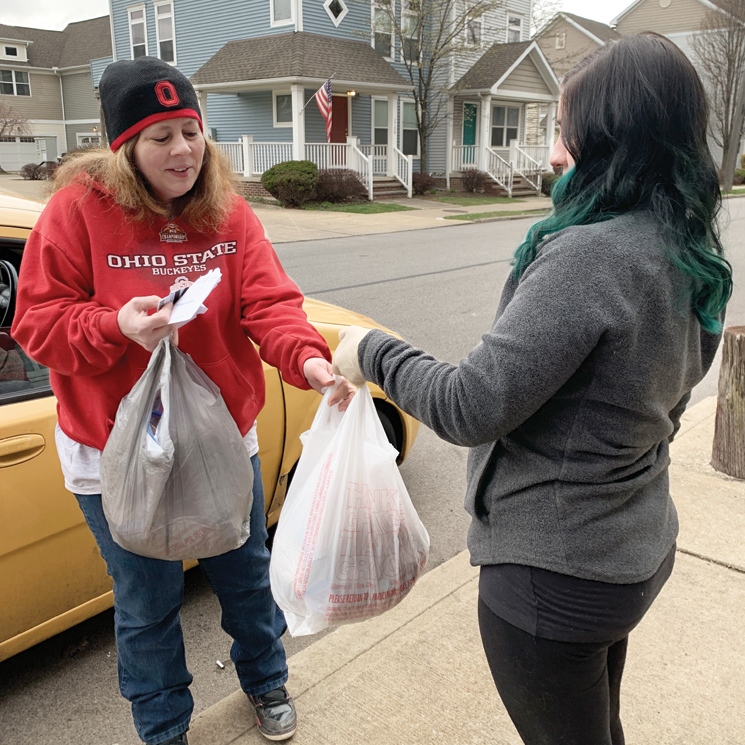
Neighborhood Pets grew out of a series of pop-up wellness clinics run by the volunteer group Friends of the Cleveland Kennel. The clinics provided low-cost vaccinations and microchips, free food, collars and leashes, and drew around 500 dog owners to each event. Seeing the great need, Britton realized that a more permanent presence could reach even more pet owners. Neighborhood Pets became an independent nonprofit and opened in a small storefront in Slavic Village in 2016.
Having a brick-and-mortar location has enabled the organization to vastly expand its services. Staffed by a few paid employees and a raft of volunteers, Neighborhood Pets provides free food, low-cost supplies and medications, training courses, and advice about pet care and behavior. The center also transports up to 40 dogs and 75 cats to nearby spay/neuter clinics every month.
Neighborhood Pets targets its services to Cleveland residents who earn less than 150% of the federal poverty guidelines. “We do not ask for proof of income. We find that to be a degrading experience,” Britton says. “We take their word for it that they are low-income.”
Volunteer veterinarians from the outlying areas run weekly wellness clinics at Neighborhood Pets. “They love the work we do,” says Britton. “They love the positivity and the grateful clients.” If a medical case is more complicated, Neighborhood Pets refers clients to a full-service practice. Often, the nonprofit provides vouchers to mitigate the cost, and a staff member will accompany the client to the clinic to act as liaison.
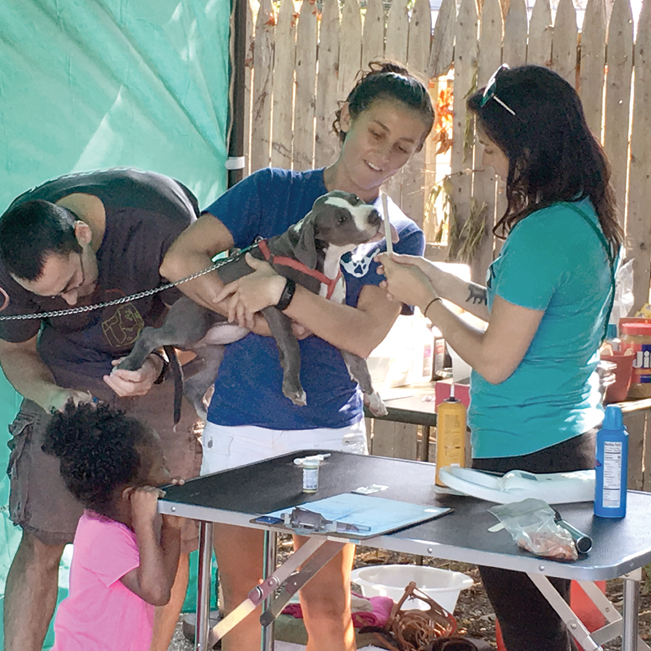
Sometimes a client’s need is out of the ordinary. Sadie Jackson, who has used the center’s services for several years, included a clause in her will to make sure her four small dogs would be cared for if something should happen to her. “I asked Neighborhood Pets if they would take [them] because they’re not used to cages,” Jackson says. “They said they would and would find them a good home. I relaxed after that.” Despite having her work hours cut due to the pandemic, Jackson still periodically drops a few dollars in Neighborhood Pets’ donation box in gratitude for its assistance over the years.
Neighborhood Pets’ help is even more crucial for pet owners like Jackson who have faced further economic hardship during the COVID-19 crisis. Designated as an essential service, the center has remained open, although wellness care and spay/neuter surgeries had to be temporarily suspended. With help from a $5,000 grant from the Humane Society of the United States, staffers extended their hours, stocked up on food and supplies, and expanded their services, making the food pantry available five days a week instead of two or three, and initiating curbside deliveries of food. The nonprofit has continued to deliver pet food and supplies to homebound clients, arrange for emergency veterinary care and organize care for the pets of hospitalized clients until their owners recover.
Neighborhood Pets transports up to 40 dogs and 75 cats to nearby spay/neuter clinics every month.
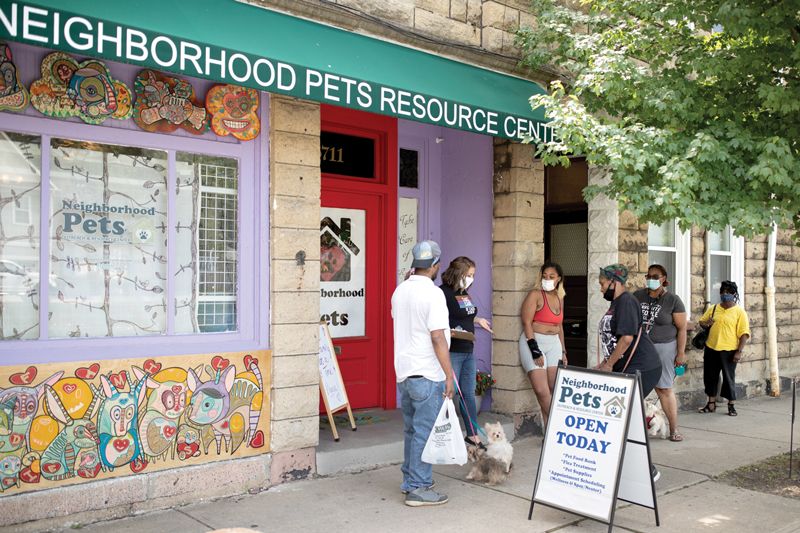
While not an official partner, Neighborhood Pets is modeled after the HSUS Pets for Life program, which pioneered a community-based approach to increasing access to pet care resources in underserved communities. Through building trust and respect, PFL offers judgment-free support to pet owners. Its credo is that race, ethnicity, geography or socioeconomic status should never be a barrier to the comfort derived from the human-animal bond.
“Everyone has the right to feel the love of an animal,” says Corey Roscoe, HSUS Ohio state director. “Animal welfare too often assumes that income equates to love and compassion. That’s such a false judgment. You hear about people who will skimp on their own food to get the dog’s food.”
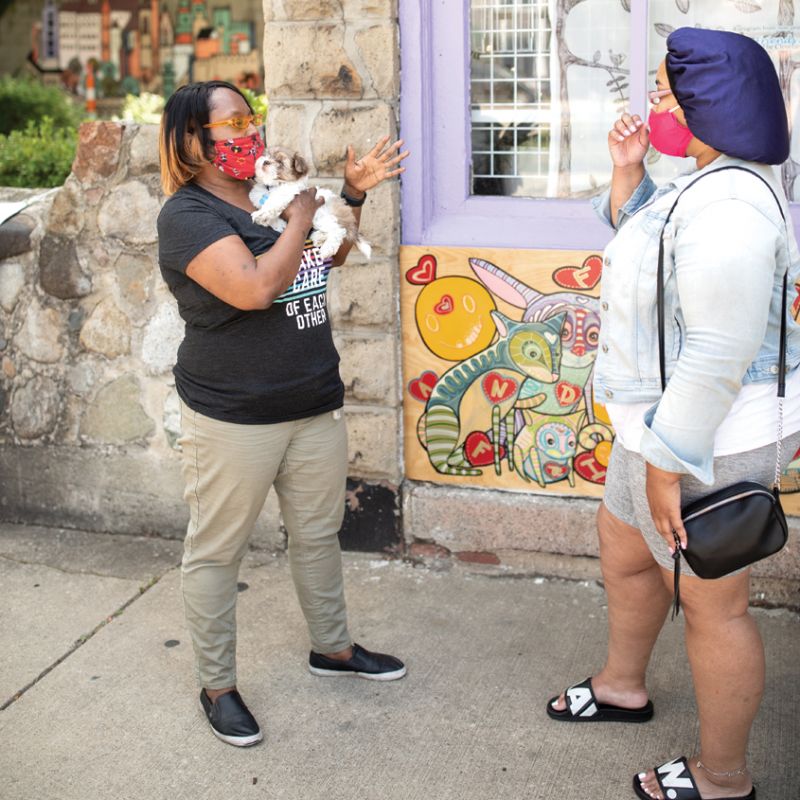
The judgment-free mandate translates into every owner being treated with respect regardless of their situation, something that Britton says clients like theirs aren’t used to. Coming from a sheltering background, she had often felt that the shelter’s goal was to remove pets from “bad” owners, making down-on-their-luck pet owners reluctant to turn to shelters for assistance.
“The big difference we see here is the trust that our clients have in us,” says Britton. That trust is built by “starting with simple things like pet food [that lead] to deeper conversations getting into all of their needs.”
But it hasn’t been all blue skies. Plans for opening a second storefront in another community were delayed by the pandemic, and the center has been broken into several times. And as the pandemic continues, Britton worries that housing issues will become even more pressing. She was recently approached by a veteran whose dog had been vaccinated and neutered through the program. “He was living in his car. He’d lost his home. We got his dog into foster care until he could take him back.”
The judgment-free mandate translates into every owner being treated with respect regardless of their situation.
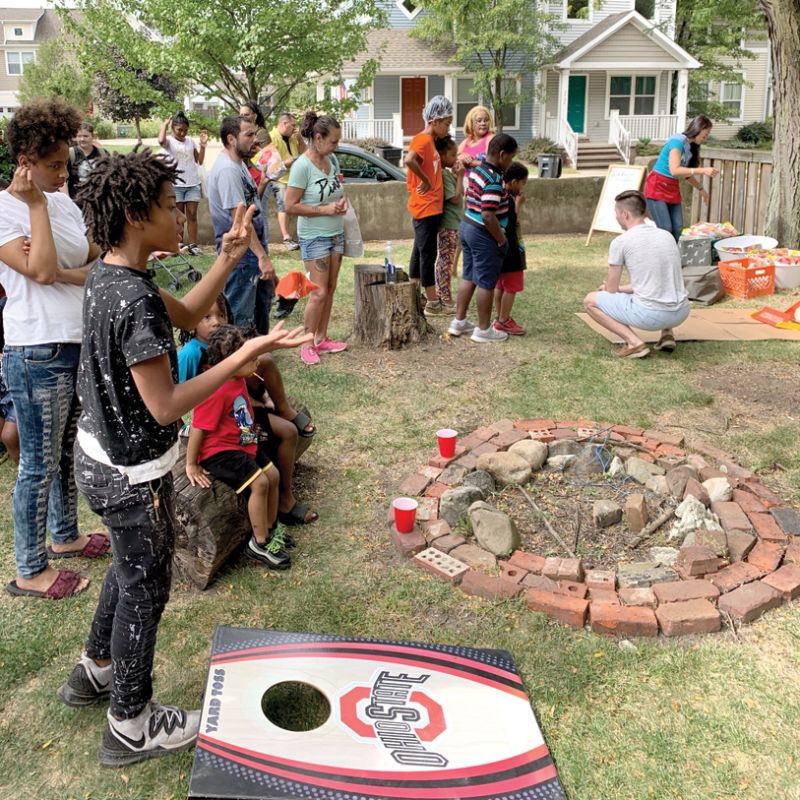
Despite the challenges, Britton has never considered closing shop. The program has been wholeheartedly embraced by the community, says Martin, who has volunteered at wellness clinics and provided transportation to elderly clients. “It’s very holistic, very inclusive,” he says. “It’s a family affair. They know everybody by name and your pet by name, like you’re taking your child somewhere.”
To celebrate the close relationship with the Village, the center hosts holiday parties and festivals featuring food and games. At one gathering, partiers wore homemade unicorn helmets and played ring toss, trying to pitch the rings onto the opposing horn. Residents who were strangers before mingled, brought together by their love of animals.
“Our passion for our work, you can’t beat it,” says Britton. “We believe in it with all our heart.”
